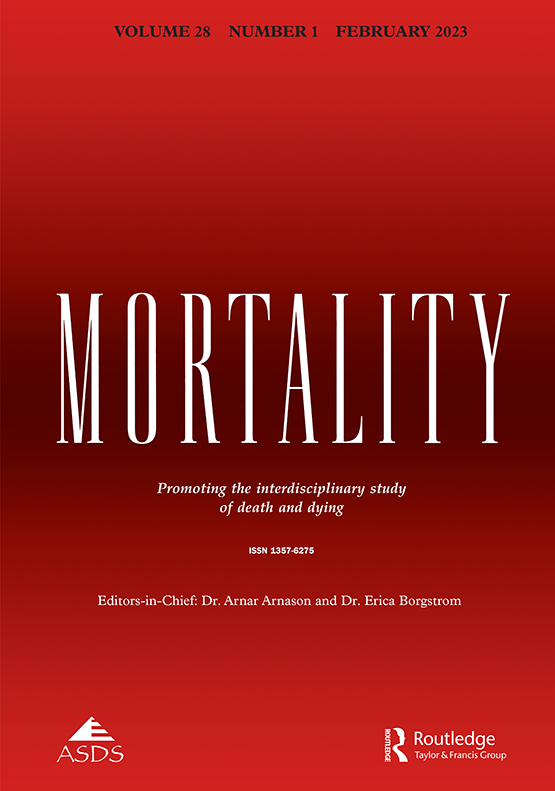Early Career Researchers’ Mentoring Scheme
The Association for the Study of Death and Society (ASDS) is piloting a mentoring scheme aimed at Early Career Researchers.
Studies have shown that in Higher Education, mentoring can support retention, promotion, publication, grant acquisition and personal growth (Gardiner et al 2007, Sambunjak et al 2009). Informal mentoring can help researchers navigate challenges and build confidence during their early career stages.
The ASDS Mentoring Scheme aims to match prospective mentees and mentors so that they can build supportive relationships, and facilitate mentoring which is attuned to the interdisciplinary highs and lows encountered in Death Studies.
The pilot scheme
Dr Jennifer Riley (current postdoctoral representative) is coordinating a trial scheme with a small number of paired mentors and mentees, beginning in Autumn 2024.
These pairs will:
- embark on a mentoring relationship for six months – meet for a minimum of three and a maximum of five sessions – while also providing valuable feedback;
- collaborate towards a series of agreed aims or objectives during their sessions, as set out at the beginning of the mentoring relationship;
- both sign a mentoring agreement, setting out expectations and goals.
We are not enforcing a strict definition of ‘early career researcher,’ but might roughly expect it to encompass those within six years of submitting their PhD who have not yet held a permanent academic post.
In the same vein, we are not delineating a definition of what ‘qualifies’ somebody to be a mentor. However, we would likely expect prospective mentors to hold, or have previously held, a permanent academic position and have a sufficient wealth of experience to be able to support more junior death studies colleagues.
How to apply
Applications for the pilot mentoring scheme closed on 30 August 2024. Thank you to everyone who applied. We will be in touch shortly.
References
Gardiner, M. et al. (2007) Show me the money! An empirical analysis of mentoring outcomes for women in academia. Higher Education Research and Development 26(4): 425-442.
Sumbanjak, D., Strauss, S.E. and Marusic, A. (2009) A systematic review of qualitative research on the meaning and characteristics of mentoring in academic medicine. Journal of General Internal Medicine 25(1): 72-78.

